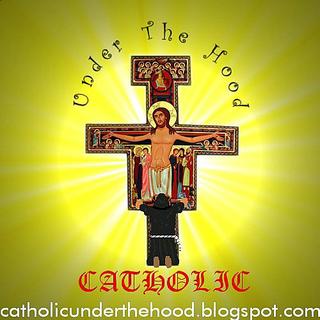Evangelicals, Catholic, and Natural Law
Peter Augustine Lawler is on the President's Council for Bioethics - he makes some very interesting points on the relationship between Evangelicals and Catholics and common pro-life goals:
Evangelicals are—in terms of real life, in terms of family life—amazingly good. The Catholics cannot touch them. Orthodox Jews cannot touch them. The problem with evangelicals is that the evangelical book is too close to an oxymoron. Evangelicals lack intellectual life, and they really need it because they do not have any tradition. Sometimes tradition can substitute for thought, but when you do not have any thoughts or any tradition, then you are in big trouble. As a result, the evangelicals are rapidly becoming Catholics. They are looking for theology, and so they go to C. S. Lewis, and they go to G. K. Chesterton, and it is then a matter of time before they start reading Thomas Aquinas. So, the evangelicals lack intellectual life that would give them the vocabulary that would enable them to talk to their fellow citizens. Because the only remedy the evangelicals have for America is for Americans to convert, and they imply that, if it were not for the absolute truth of the Bible, the vulgar relativism of libertarian sociobiology would be true. They need to talk the language of Natural Law and say that contemporary individualism would be untrue even if there were no God. They need to develop a kind of law language that is not so revelation-dependent. Some evangelicals students have said that they cannot talk to anyone who does not take the Bible seriously. Then they are already politically defeated, because, while America is fairly religious,
I do not think most people go to church, unfortunately. This is why we suddenly have a Supreme Court that is a majority Catholic; even Kennedy is relatively conservative in a way. We have a Supreme Court that is orthodox Catholic, since the Catholics are able to translate the truth of revelation into language accessible to people who do not necessarily believe in revelation.
I think that Lawler makes some interesting points - Evangelicals need Catholics to provide the intellectual structure of the movement, Catholics need the passion of the Evangelicals to provide the energy of the movement. Not that the two should be seen as entirely separate.
Therefore, it is disappointing when Catholics don't know their intellectual heritage or believe that the ideas of people like Chesterton are no longer important. I guess Lewis would say that this is the way of the evil one - not to argue an idea because it is true, but because it is modern.
Unfortunately, this often happens in the fields of philosophy and theology - why worry about the ideas of past thinkers when we have the all new ideas of modern thinkers. Who is more impressive at cocktail parties - the expert on Foucault or the expert on Plato?
Evangelicals are—in terms of real life, in terms of family life—amazingly good. The Catholics cannot touch them. Orthodox Jews cannot touch them. The problem with evangelicals is that the evangelical book is too close to an oxymoron. Evangelicals lack intellectual life, and they really need it because they do not have any tradition. Sometimes tradition can substitute for thought, but when you do not have any thoughts or any tradition, then you are in big trouble. As a result, the evangelicals are rapidly becoming Catholics. They are looking for theology, and so they go to C. S. Lewis, and they go to G. K. Chesterton, and it is then a matter of time before they start reading Thomas Aquinas. So, the evangelicals lack intellectual life that would give them the vocabulary that would enable them to talk to their fellow citizens. Because the only remedy the evangelicals have for America is for Americans to convert, and they imply that, if it were not for the absolute truth of the Bible, the vulgar relativism of libertarian sociobiology would be true. They need to talk the language of Natural Law and say that contemporary individualism would be untrue even if there were no God. They need to develop a kind of law language that is not so revelation-dependent. Some evangelicals students have said that they cannot talk to anyone who does not take the Bible seriously. Then they are already politically defeated, because, while America is fairly religious,
I do not think most people go to church, unfortunately. This is why we suddenly have a Supreme Court that is a majority Catholic; even Kennedy is relatively conservative in a way. We have a Supreme Court that is orthodox Catholic, since the Catholics are able to translate the truth of revelation into language accessible to people who do not necessarily believe in revelation.
I think that Lawler makes some interesting points - Evangelicals need Catholics to provide the intellectual structure of the movement, Catholics need the passion of the Evangelicals to provide the energy of the movement. Not that the two should be seen as entirely separate.
Therefore, it is disappointing when Catholics don't know their intellectual heritage or believe that the ideas of people like Chesterton are no longer important. I guess Lewis would say that this is the way of the evil one - not to argue an idea because it is true, but because it is modern.
Unfortunately, this often happens in the fields of philosophy and theology - why worry about the ideas of past thinkers when we have the all new ideas of modern thinkers. Who is more impressive at cocktail parties - the expert on Foucault or the expert on Plato?










0 Comments:
Post a Comment
<< Home